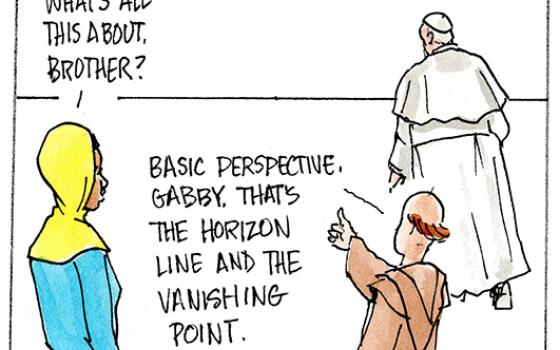The so-called, and unhappily named, “Gang of Six” has devised a bipartisan plan to reduce the deficit over the long-term and raise the debt ceiling in the short-term. Details, if this morning’s Washington Post is any guide, are sketchy but they key question is not if this is the best deal possible, or the best way to address the nation’s finances, but if this proposal can, and should, pass both houses of Congress.
The most significant part of the plan has to do with taxes. It would simplify the tax code radically, eliminating many special interest tax breaks and corporate loopholes. Some of the revenue saved by closing the loopholes, about $1 trillion over ten years, would go towards long-term debt reduction but most of it would go into lowering both corporate and individual tax rates. This kind of simplification has many benefits. It levels the economic playing field so that small business are not paying the full tax rate while those corporations with lobbyists capable of getting favorable tax treatment pay miniscule taxes or avoid them altogether. So far, so good.
Reports also indicate that the proposal would change the home mortgage interest deduction. Certainly, that provision should be altered. It should not extend to second homes, which almost by definition are exclusively owned by the most wealthy Americans. But, if the measure goes further, attacking the basic structure of home interest deductions on a person’s primary residence, there will be hell to pay and there should be hell to pay. Not only is home ownership one of the principal means of access into the middle class for millions of Americans, but by encouraging home ownership, the government helps create stable neighborhoods in which people invest in their communities.
The changes in Social Security appear less noxious than most proposals. First, and importantly, the savings generated by recalibrating cost-of-living adjustments do not go towards long-term deficit reduction but towards increasing the long-term solvency of the Social Security program. It is a down payment against the costs of the Baby Boomers’ retirement. Second, there is a provision that requires benefits to remain above 125 percent of the poverty rate. But, most importantly, the proposed changes do not raise the retirement age, a truly bad idea. I would prefer to see the change in cost-of-living calibrations be accompanied by a removal of the cap on FICA taxes, but that can be done in the future.
There are cuts in Medicare and Medicaid, but they are not enormous or crippling. These programs will disburse trillions of dollars in the next few years, and the cuts are in the billions. Politically, Democrats do not want to touch these programs, the better to draw a clear line in the sand between the two parties. Democrats want to run against the Ryan plan to essentially privatize Medicare. They still can. One thing you learn quickly if you spend time with seniors, is they really do study how proposals to change Medicare will affect them. Cuts in payments to providers are one thing. Turning Medicare into a voucher program is another. And, you can count on the AARP to make sure that seniors know the difference.
Of course, the proposal does not spell out what cuts in discretionary programs must be made. The proposal merely allocates those cuts to the relevant committees. This may strike some as kicking the can down the road. But, sometimes, that is all you can do at one time.
All of these issues would have benefited from consideration apart from the current showdown. Tax reform is a big issue and, if framed properly, one I had hoped President Obama would be running on next year. There is an inherent populism in the anti-tax movement but there is also an inherent populism to the idea of eliminating special corporate tax breaks. I would prefer that more of the cuts in spending come from the Pentagon than from social programs and think there is a strong moral argument to be made for that approach. But, elections have consequences and the GOP won the House last year and have enough votes in the Senate to forestall truly progressive legislation. That is an unhappy fact, but a fact nonetheless.
So far as I can tell, this plan is better than it might have been, certainly better than the ridiculous Balanced Budget Amendment that passed the House last night. The savings the plan generates, $3.7 trillion, should be enough to convince investors that Washington has, at long last, begun to confront the long-term fiscal health of the government. It may even be enough to convince corporations to stop hoarding their cash and begin investing in their own companies again by hiring new employees and purchasing new equipment. With the possibility of interest rates going through the roof if there is no debt ceiling deal, only a fool would hire a new employee today. Raising the debt ceiling is job #1 and if the Gang of Six’s proposals accomplish that, with minimal negative consequences for programs that help the poor and the vulnerable, then those proposals warrant support.
And, dear Senators – change the name. “Gang” has a host of unhappy associations. Why not call yourselves the “Team of Six.”



